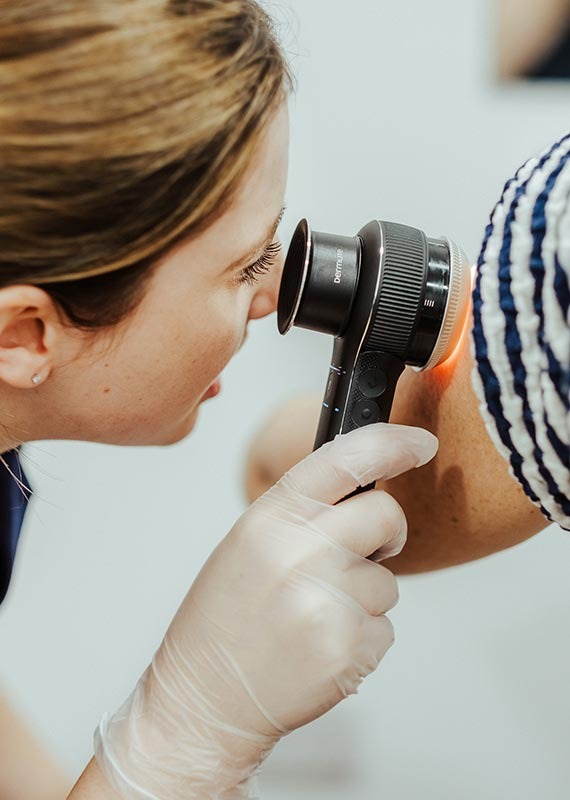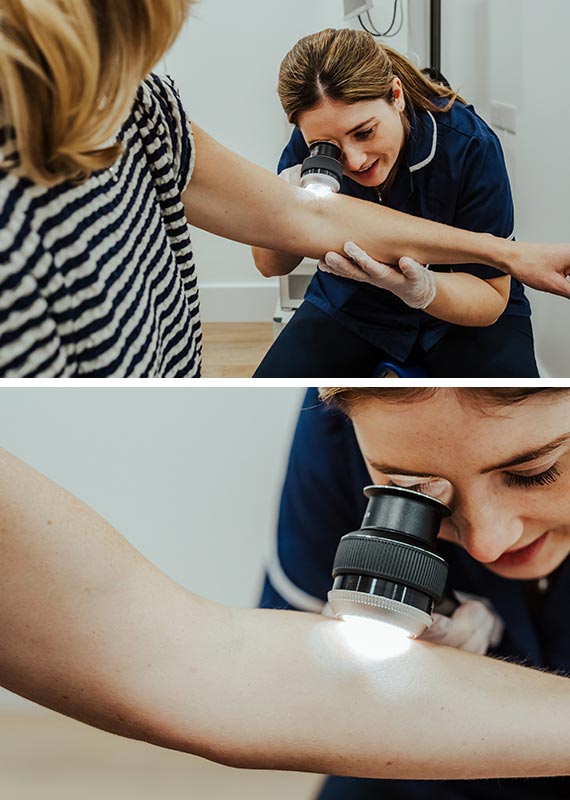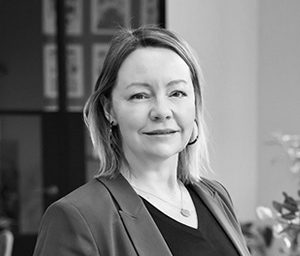As a freckly person who loves the sun (but also has a family history of skin cancer), keeping an eye on my skin is something I know I should do—yet actually checking my own moles? Impossible. There are simply too many to count, hidden amongst the freckles. That’s why I finally book an appointment at The Mole Clinic, a specialist skin-check service with multiple locations across London, and other clinics nationwide.

Founded in 2003, The Mole Clinic has built a strong reputation for early skin cancer detection, offering professional mole mapping, skin checks, and removals. They don’t just look at suspicious moles—they use medical imaging and expert analysis to monitor changes over time, which feels incredibly reassuring. My nurse, Dashiell Murray, is friendly and professional, immediately putting me at ease. Using a dermatoscope, she examines my skin closely, explaining what she’s looking for. Most of my freckles and moles are completely normal, but two stand out as irregular, and Dash shows me why. They are slightly asymmetrical in shape, but I would never have spotted this myself. Rather than alarm me, the clinic follows a clear protocol: the moles are measured, photographed, and sent off for analysis by dermatology specialists.

A few days later, I receive an email with my results. There are no urgent concerns, which is a huge relief, but I am advised to return in three months for a follow-up check to monitor any changes. My appointment is already booked.
Overall, The Mole Clinic provides a calm, professional, and incredibly thorough service. Whether you have a single mole or, like me, an uncountable collection, it’s well worth booking in. Given my love of the sun, I’m making regular skin checks a priority from now on, and continuing to thoroughly cover myself in SPF 50 whenever I go outside.
More details:
At a Full Body Skin Check, which costs £195, a specially trained nurse will discuss your personal risk for skin cancer and will examine ALL your visible moles to identify any which are visually abnormal – a potential symptom of a basal cell, squamous cell or melanoma skin cancer.
At the screening, you will also be advised if you may have Atypical Mole Syndrome, a disorder of the skin affecting 1 in 50 and which increases the risk of melanoma by up to 10 times.
For those with a visually abnormal mole, this will be highlighted for you to then either discuss with your GP for further investigation, or alternatively the nurse can arrange rapid diagnosis by an expert doctor with a Mole Diagnostic Report for just £35 and a Mole Biopsy, if required.

